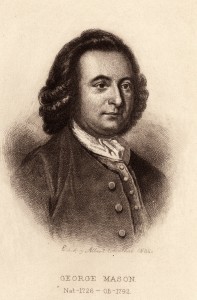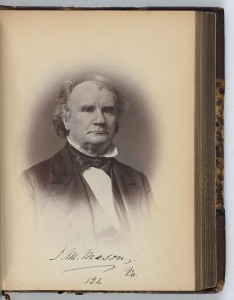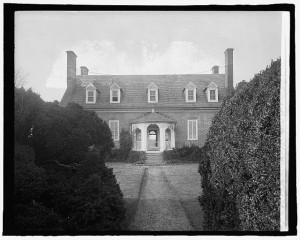From the Richmond Daily Dispatch October 16, 1861:
A Patriot’s charge to his Sons.
–Col. George Mason, the author of the first Constitution of Virginia, died at his residence in Fairfax county, near Alexandria, on the 7th of October, 1792, in the 67th year of his age. The following extract from his will is worthy of universal acceptation in these times: “I recommend it to my sons, from my experience in life, to prefer the happiness and independence of a private station to the troubles and vexation of public business; but, if either their own inclinations or the necessity of the times should engage them in public affairs, I charge them, on a father’s blessing, never to let the motive of private interest or ambition, induce them to betray, nor the terrors of poverty and disgrace, or the fear of danger and death, deter them from asserting the liberty of their country, and endeavoring to transmit to their posterity those sacred rights to which themselves were born.”
Words that in the present state of affairs may be aptly described by the language of Scripture as “Apples of gold in pictures of silver.”
George Mason was the principle author of the Virginia Declaration of Rights, which was adopted on June 12, 1776. The declaration asserts
That government is, or ought to be, instituted for the common benefit, protection, and security of the people, nation or community; of all the various modes and forms of government that is best, which is capable of producing the greatest degree of happiness and safety and is most effectually secured against the danger of maladministration; and that, whenever any government shall be found inadequate or contrary to these purposes, a majority of the community hath an indubitable, unalienable, and indefeasible right to reform, alter or abolish it, in such manner as shall be judged most conducive to the public weal.
150 years ago today James Murray Mason, George’s grandson, was on his way to Europe as “Commissioner of the Confederate States to the English Government”. I guess you could say that James Mason represented a government that was trying to “reform, alter or abolish” the United States government by seceding from it.
George’s estate, Gunston Hall, is a National Historic Landmark.



